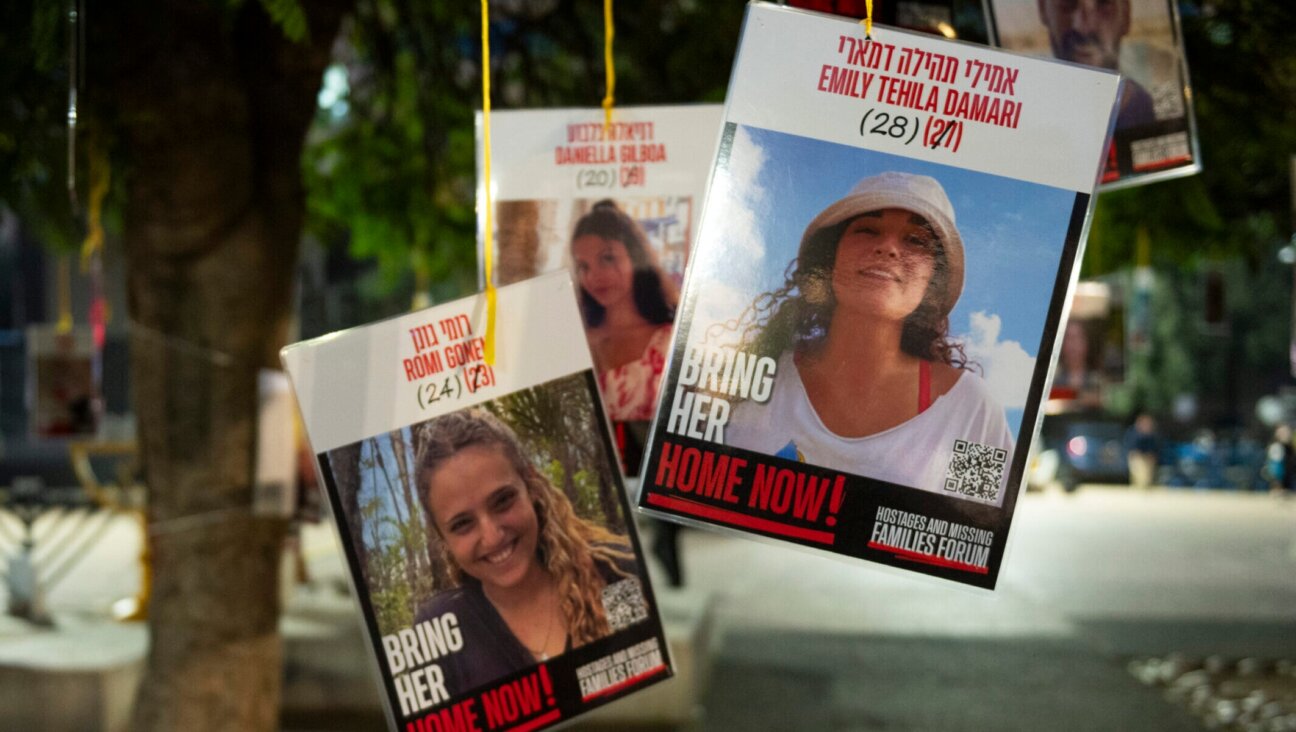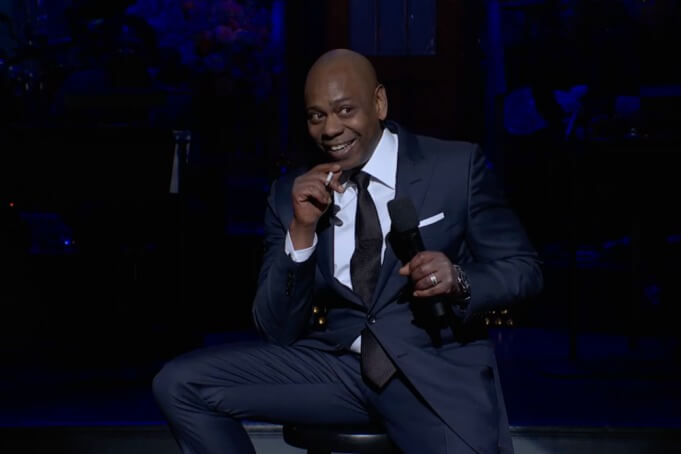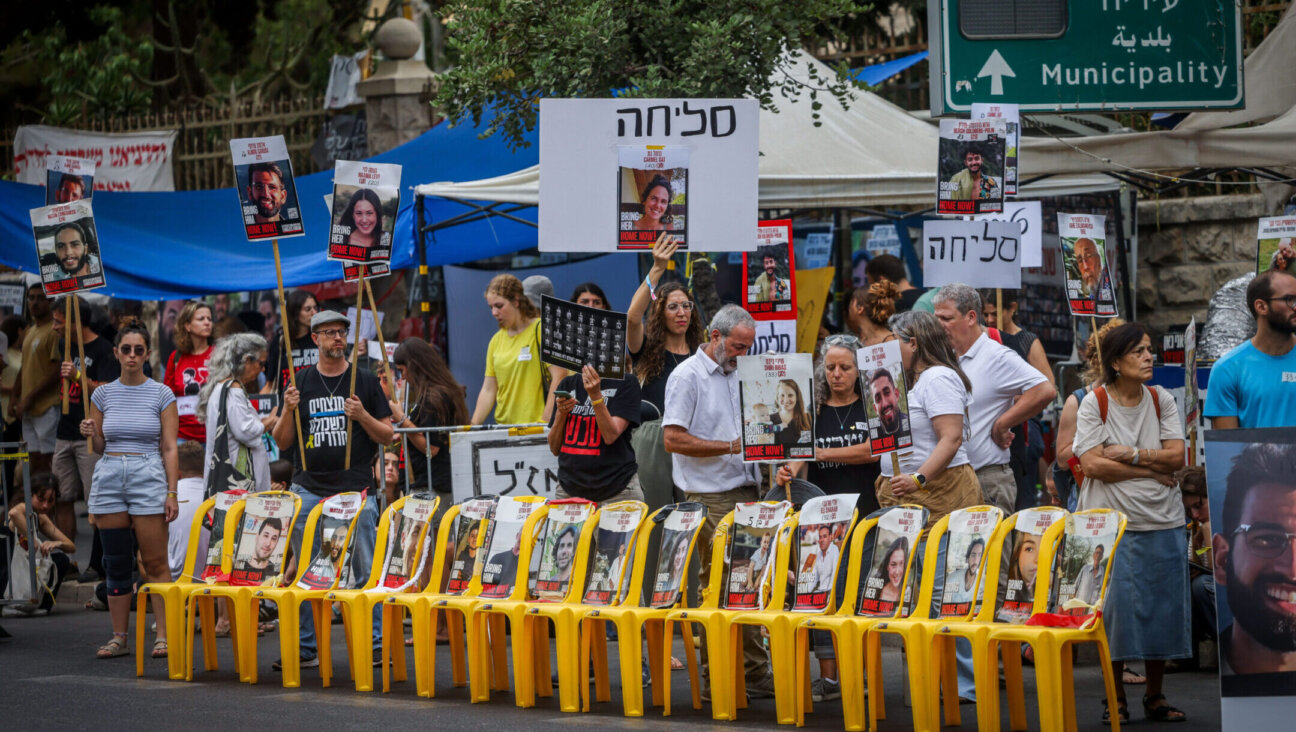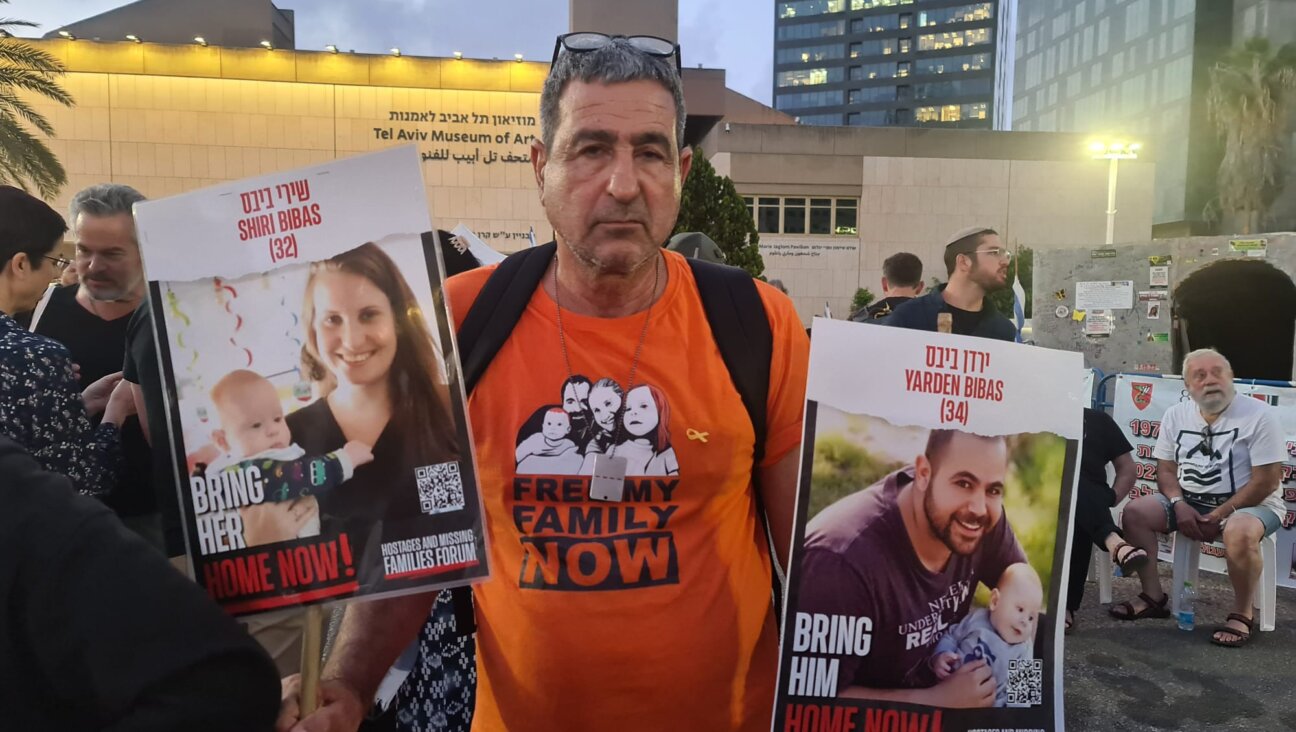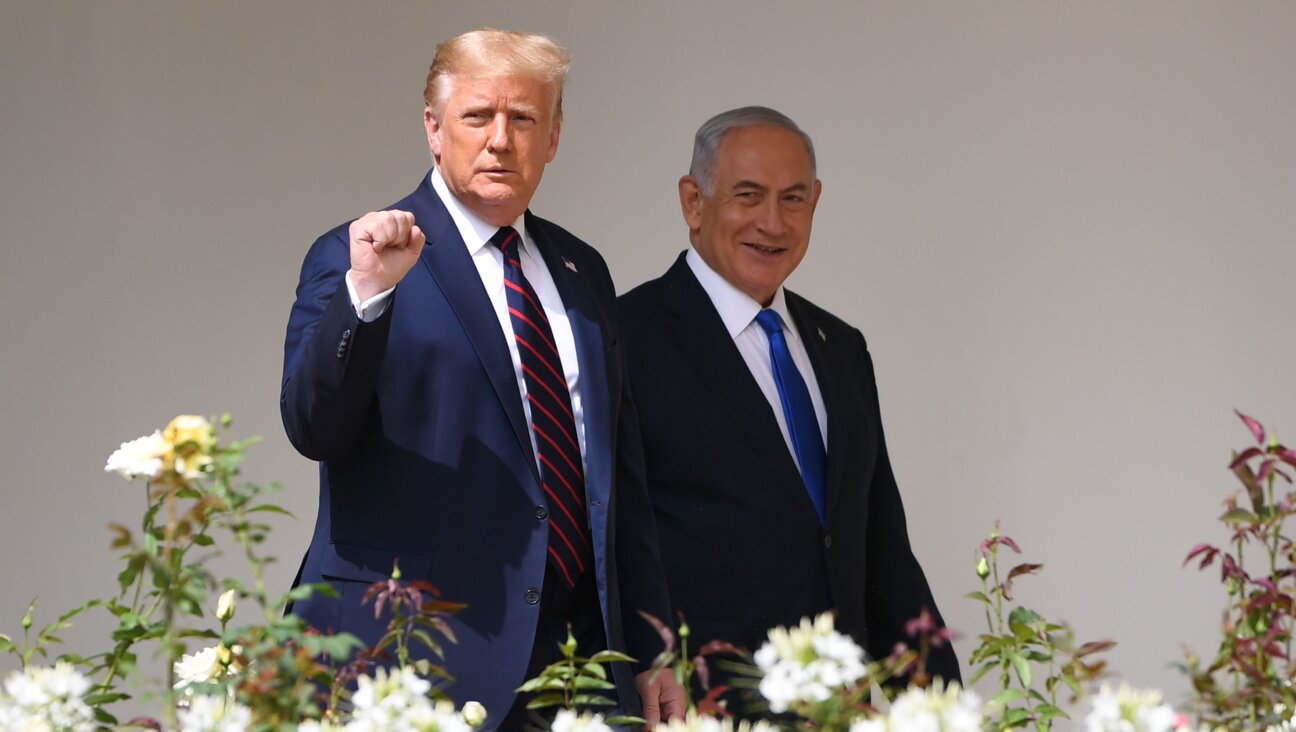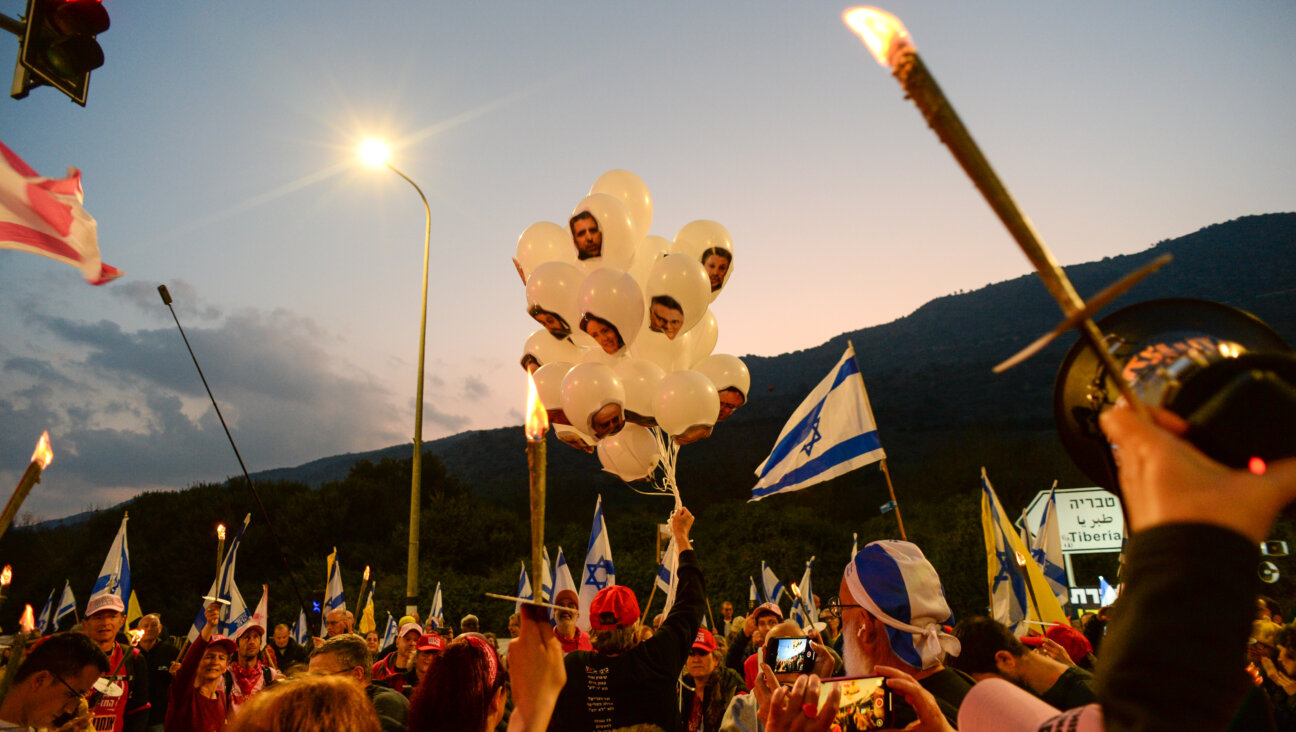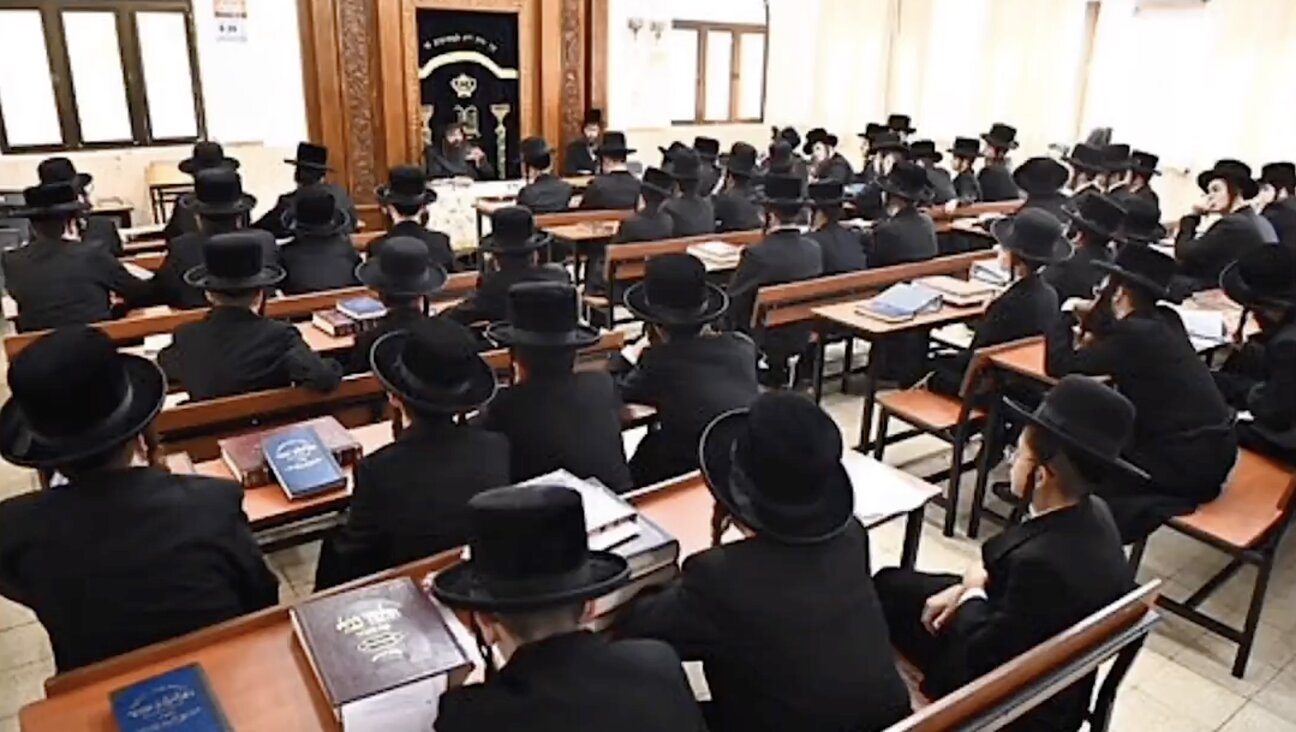As calls for NYC mask ban gain momentum, Jewish and Black advocacy groups announce their support
he ADL, NAACP and other groups back legislation that would ban masks at public gatherings, and drew parallels with the Ku Klux Klan masks.
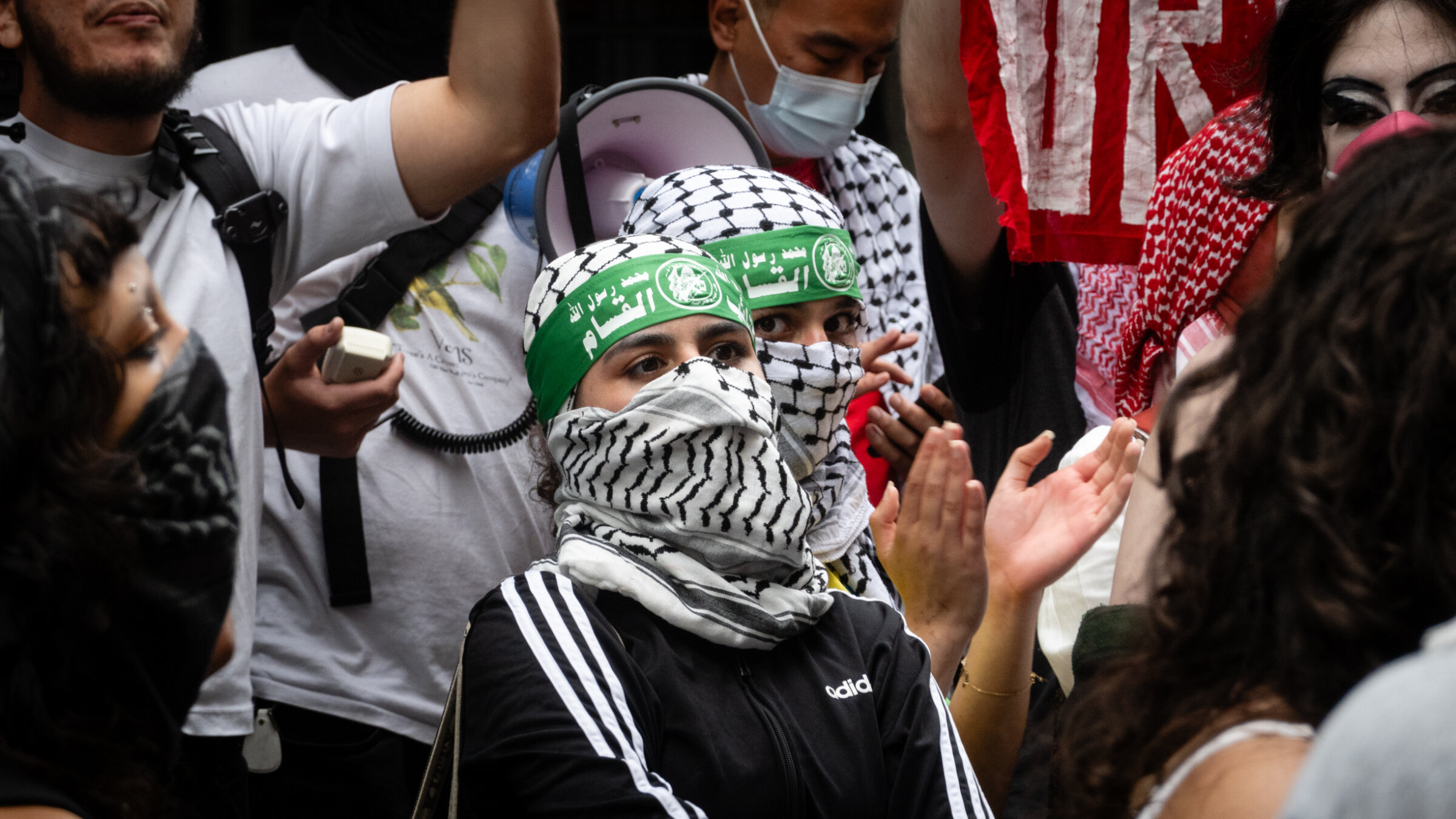
Protesters wearing Hamas headbands and masks at Baruch College in Manhattan, June 5, 2024. (Luke Tress)
(New York Jewish Week) — Jewish and Black advocacy organizations came together to announce their support for a ban on masks at protests in New York State, linking contemporary antisemitism by masked attackers to past actions by hooded members of the Ku Klux Klan.
Calls for a mask ban have gained momentum in recent weeks, as legislation has been introduced in Albany and the idea has the endorsement of Gov. Kathy Hochul as well as Mayor Eric Adams. This week, Los Angeles’ mayor floated a similar ban after clashes between pro-Palestinian and pro-Israel activists outside a synagogue there.
The effort comes as antisemitism has surged in New York City and as pro-Palestinian street protests, often by demonstrators wearing masks, have roiled the Jewish community. Law enforcement has said masking among demonstrators has hindered prosecution of crimes linked to demonstrations — such as the occupation of a Columbia University building earlier this year.
“This is not about political speech,” Jonathan Greenblatt, the CEO of the Anti-Defamation League, said at a Thursday press conference outside Columbia University announcing the joint effort to ban masks at protests.
“What we’re talking about today aren’t activists, they’re antagonists,” Greenblatt said, charging protesters with “hiding their identities behind masks so that they can menace their fellow Americans with impunity.”
A proposed mask ban has been gaining traction in New York, particularly following an incident earlier this month when masked protesters in a subway car chanted “Raise your hand if you’re a Zionist.” That same evening protesters, many of them masked, demonstrated outside an exhibit commemorating the Nova music festival massacre in a rally widely condemned as antisemitic.
“People have a right to be safe on our public transportation, walking down the streets in their places of worship,” Hochul said in an interview with MSNBC. “And no one should be able to hide under the cover of almost a full-face mask to commit these atrocities against fellow New Yorkers. That’s where we have to draw the line.”
Pro-Palestinian and leftist groups have pushed back against the anti-masking effort, calling it an infringement on the right to free assembly as well as a risk to the immunocompromised. The progressive advocacy group Jews for Economic and Racial Justice announced an effort called Jews for Mask Rights to oppose the legislation.
“In addition to offering the NYPD another reason to stop and harass people, a mask ban gives the NYPD further excuse to claim arrests made at whim are justified,” JFREJ executive director Audrey Sasson said in a Thursday statement. “This proposed law is not about safety but about controlling the bodily autonomy of and further marginalizing those who hold currently unpopular political views.”
The pro-ban coalition of Black and Jewish groups, called Unmask Hate NY, is backing legislation to bar most masking at protests which was introduced in the New York State Assembly by Bronx Assemblymember Jeffrey Dinowitz, who is Jewish. The effort has the backing of the ADL, the Jewish Community Relations Council of New York, the NAACP, prominent Harlem pastor Johnnie Green, the National Urban League, the UJA-Federation of New York and other state-level lawmakers.
In a statement, Hazel Dukes, president of the NAACP New York State Conference, cited the Ku Klux Klan’s white hoods in her endorsement of a mask ban. Several states enacted mask bans in the past in order to hinder the hate group’s activities.
“Black communities know all too well that individuals who hide their identities with intent to terrorize, intimidate or harass are a threat to all of our safety and have no place in New York,” Dukes said in a statement. “Reinstating New York’s masking laws will protect New Yorkers from some of the most terrifying periods in our history; when the Klan menaced Black Americans, faces covered, without accountability. We can’t let history repeat itself.”
Dinowitz’s legislation, which is still being finalized, says it aims to “remove the cloak of anonymity from individuals who commit aggressive actions against others during a lawful or unlawful assembly or riot.” The proposed legislation makes exemptions for masks and face coverings worn for medical and religious reasons.
New York State had an anti-masking law in place dating back to the 1800s, but scrapped the bill in 2020 as masking became widespread to help stem the spread of COVID-19. The Ku Klux Klan unsuccessfully challenged the previous law in the U.S. Court of Appeals in 2004.
Dinowitz’s bill has not yet come to a vote in the State Assembly, but he hopes to see it passed by the beginning of next year.
“Since Oct. 7, antisemitism hasn’t spiked, it’s skyrocketed, and we cannot allow people who are hateful to conceal their identities,” he said at the Thursday briefing, adding that the law was “not focused on any particular group.”
New York State lawmakers Brian Cunningham of Brooklyn and Nily Rozic of Queens, who is Israeli, also spoke in favor of the legislation at Thursday’s briefing.
Law enforcement has said masking has impeded some investigations into criminal conduct by protesters. Last week, the Manhattan District Attorney’s office dropped charges against most of the protesters who forcibly took over a building at Columbia University in April. One of the reasons the charges were dropped was a lack of evidence against individuals who were wearing masks, making them difficult to identify in security footage, the D.A.’s office told the New York Jewish Week.
Along with JFREJ, other left-wing and pro-Palestinian groups — as well as free-speech advocates — are mobilizing to protest a potential ban.
A group of anti-Israel activist groups announced a Saturday rally outside Hochul’s office, calling the proposal “a clear infringement on the rights of the people.” The activist groups often encourage followers to wear masks at protests, and many wear keffiyehs, a scarf that has become a symbol of the pro-Palestinian movement.
“No mask ban. No Zionist collaboration. Develop the summer of resistance,” an advertisement for the rally said. “Mask up, bring rage and solidarity.”
The Foundation for Individual Rights and Expression, a free speech advocacy group that has also criticized some pro-Palestinian protest activities, likewise voiced concern, saying anonymity was core to free-speech protections in the Constitution.
“The First Amendment protects the right to speak anonymously, shielding individuals from retaliation for expressing dissenting or unpopular ideas,” Aaron Terr, FIRE’s director of public advocacy, told the New York Jewish Week. “While some people may wear masks to conceal their identity while engaging in illegal activity, that does not justify an overly broad mask ban that criminalizes lawful expressive activity.”
Marc Morial, the president of the National Urban League and a former mayor of New Orleans, told the New York Jewish Week that protesters’ fears of doxxing were not “unreasonable,” and that “no one should lose their job, their standing, their status because they exercise their constitutional right.”
But he supports a mask ban, tying it to when the Ku Klux Klan targeted his family while he was growing up in the South.
“The KKK sprayed its insignia on our home,” he said, adding that his family had received death threats from hooded agitators. “The First Amendment and the right to peacefully assemble should not mean masks or disguises while protesting.”
Greenblatt said the comparison between that experience and today’s protests resonated with him.
“It’s a lot like what we’re seeing here in New York, here and now with these masked protesters marching down Broadway, so I think the parallels are there,” he said. “Our communities have always been partners.”
Pastor Johnnie Green of the Mount Neboh Baptist Church in Harlem said his support for the legislation was not an “endorsement” of the war in Gaza, and that he backed anti-masking out of solidarity with the Jewish community.
“We are here to stand with our Jewish friends who have been attacked by masked individuals,” Green said. “I’m not afraid of repercussions.”
A message from our Publisher & CEO Rachel Fishman Feddersen

I hope you appreciated this article. Before you go, I’d like to ask you to please support the Forward’s award-winning, nonprofit journalism so that we can be prepared for whatever news 2025 brings.
At a time when other newsrooms are closing or cutting back, the Forward has removed its paywall and invested additional resources to report on the ground from Israel and around the U.S. on the impact of the war, rising antisemitism and polarized discourse.
Readers like you make it all possible. Support our work by becoming a Forward Member and connect with our journalism and your community.
— Rachel Fishman Feddersen, Publisher and CEO






